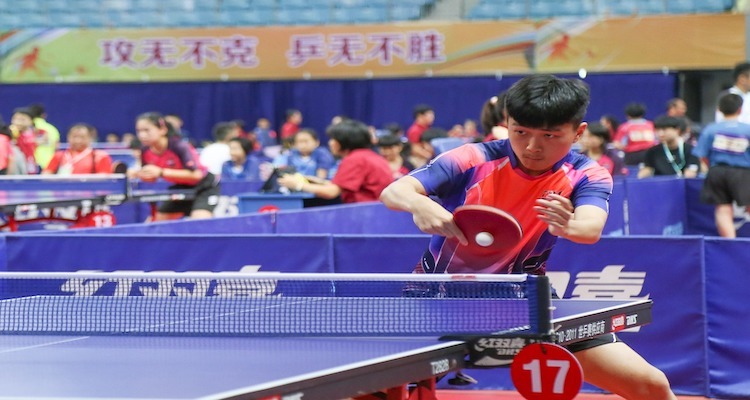
Table tennis, also known as ping pong, is a highly demanding sport that requires not only physical prowess but also a strong psychological mindset. In order to excel in table tennis, athletes must navigate various psychological demands that can significantly impact their performance. Let's explore some of these demands in more detail.
Concentration and Focus: Table tennis demands exceptional concentration and focus. The game is fast-paced, with quick exchanges and rapid decision-making. Players must maintain intense concentration to track the movement of the ball, anticipate their opponent's shots, and execute precise strokes. Losing focus even for a split second can result in a missed opportunity or an error.
Mental Resilience: Table tennis is a mentally challenging sport. Players must possess mental resilience to overcome setbacks and maintain their composure during matches. The pressure to perform well, the fear of making mistakes, and the presence of a strong opponent can all affect a player's confidence. Mental resilience helps players stay focused, adapt to changing circumstances, and bounce back from disappointments.
Strategic Thinking: Table tennis is not just about hitting the ball back and forth. It requires strategic thinking and the ability to analyze the game. Players must develop a deep understanding of their opponent's style, strengths, and weaknesses. They need to adjust their tactics and exploit their opponent's vulnerabilities to gain an advantage. Quick thinking and effective decision-making are essential to outwit opponents in this fast-paced sport.
Emotional Control: Table tennis can evoke a range of emotions during a match—excitement, frustration, anger, or anxiety. Emotional control is crucial to maintain a balanced state of mind and make rational decisions. Managing emotions helps players stay focused, control their adrenaline levels, and prevent impulsive actions that may lead to errors. It also enables them to recover quickly from mistakes and continue performing at their best.
Self-Confidence: Confidence plays a vital role in table tennis. Believing in one's abilities is crucial to take risks, attempt challenging shots, and perform under pressure. Self-confidence helps players maintain a positive mindset, even in the face of adversity. It allows them to trust their training and skills, enhancing their performance on the table.
Adaptability: Table tennis demands adaptability as players encounter various opponents with unique playing styles. The ability to quickly adjust their game plan, footwork, and stroke technique is essential. Adapting to different playing conditions, such as varying table surfaces or lighting, is also crucial. Being flexible and adaptable allows players to stay competitive in different situations.
In conclusion, table tennis places significant psychological demands on players. The sport requires unwavering concentration, mental resilience, strategic thinking, emotional control, self-confidence, and adaptability. Developing these psychological skills is crucial for athletes aiming to excel in table tennis and perform consistently at a high level. By honing their mental game alongside their physical abilities, players can enhance their performance and achieve success in this fast-paced and challenging sport.
Several famous table tennis players have acknowledged the significance of psychology in their sport. Here are a few examples:
These are just a few examples of table tennis players who have recognized the significance of psychology in their sport. Their insights highlight the importance of mental skills, such as focus, confidence, emotional control, and resilience, in achieving peak performance on the table tennis court.
A sport psychologist can play a crucial role in helping a table tennis player enhance their performance and overcome psychological challenges. Here are some ways in which a sport psychologist can assist a table tennis player:
Overall, a sport psychologist can provide table tennis players with the necessary tools and strategies to optimize their mental game, enhance their performance, and overcome psychological barriers. Through personalized interventions and support, sport psychologists can contribute significantly to a player's overall success and well-being in the sport.
If you are interested in employing a sport psychologist or sport psychology consultant to help with your table tennis then please search our excellent range of specialists from across the globe. Just list our home page and search our directory to help you improve your mental game.
